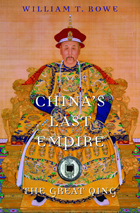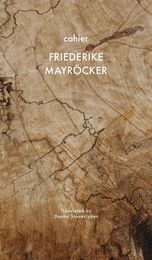
In a brisk revisionist history, William Rowe challenges the standard narrative of Qing China as a decadent, inward-looking state that failed to keep pace with the modern West.
The Great Qing was the second major Chinese empire ruled by foreigners. Three strong Manchu emperors worked diligently to secure an alliance with the conquered Ming gentry, though many of their social edicts—especially the requirement that ethnic Han men wear queues—were fiercely resisted. As advocates of a “universal” empire, Qing rulers also achieved an enormous expansion of the Chinese realm over the course of three centuries, including the conquest and incorporation of Turkic and Tibetan peoples in the west, vast migration into the southwest, and the colonization of Taiwan.
Despite this geographic range and the accompanying social and economic complexity, the Qing ideal of “small government” worked well when outside threats were minimal. But the nineteenth-century Opium Wars forced China to become a player in a predatory international contest involving Western powers, while the devastating uprisings of the Taiping and Boxer rebellions signaled an urgent need for internal reform. Comprehensive state-mandated changes during the early twentieth century were not enough to hold back the nationalist tide of 1911, but they provided a new foundation for the Republican and Communist states that would follow.
This original, thought-provoking history of China’s last empire is a must-read for understanding the challenges facing China today.

In the first half of the nineteenth century the Qing Empire faced a crisis. It was broadly perceived both inside and outside of government that the “prosperous age” of the eighteenth century was over. Bureaucratic corruption and malaise, population pressure and food shortages, ecological and infrastructural decay, domestic and frontier rebellion, adverse balances of trade, and, eventually, a previously inconceivable foreign threat from the West seemed to present hopelessly daunting challenges.
This study uses the literati reformer Bao Shichen as a prism to understand contemporary perceptions of and proposed solutions to this general crisis. Though Bao only briefly and inconsequentially served in office himself, he was widely recognized as an expert on each of these matters, and his advice was regularly sought by reform-minded administrators. From examination of his thought on bureaucratic and fiscal restructuring, agricultural improvement, the grain tribute administration, the salt monopoly, monetary policy, and foreign relations, Bao emerges as a consistent advocate of the hard-nosed pursuit of material “profit,” in the interests not only of the rural populace but also of the Chinese state and nation, anticipating the arguments of “self-strengthening” reformers later in the century.
READERS
Browse our collection.
PUBLISHERS
See BiblioVault's publisher services.
STUDENT SERVICES
Files for college accessibility offices.
UChicago Accessibility Resources
home | accessibility | search | about | contact us
BiblioVault ® 2001 - 2024
The University of Chicago Press









